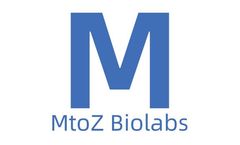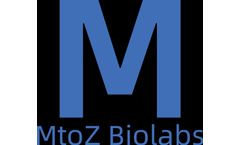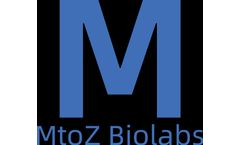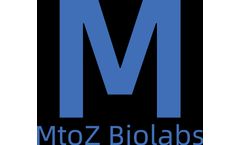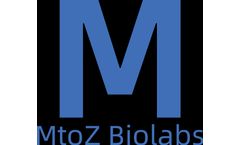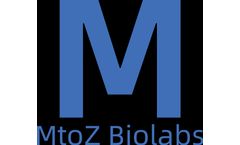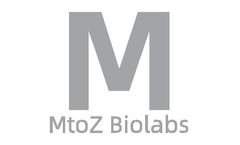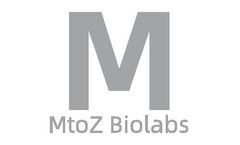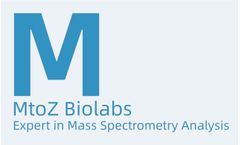Drugs Today With Computational Design Articles & Analysis: Older
61 articles found
Recombinant protein drugs refer to protein products that originate from animals and plants and are developed through biotechnology research. These protein drugs exhibit certain biological activity and can prevent, diagnose, and treat diseases in humans, animals, and plants. Compared with small molecular drugs, recombinant protein drugs offer advantages such as high activity, high specificity, and ...
What Is PROTAC Technology? Proteolytic targeting chimera (PROTAC) is a new type of drug design technology that works by inducing the degradation of target proteins. Unlike conventional small molecules that typically inhibit protein function, PROTACs facilitate the ubiquitination and subsequent degradation of specific proteins. This bifunctional molecule consists of two distinct elements: a ...
Introduction Microarray printing technology has revolutionized the field of genomics and proteomics, and its application in glycobiology is no exception. Glycobiology, the study of carbohydrates and their biological functions, relies heavily on the ability to analyze large-scale carbohydrate interactions. Microarray printing in glycobiology enables the precise and high-throughput analysis of ...
Alfa Cytology has introduced its advanced drug development services for brain tumors. Alfa Cytology, celebrated for its cutting-edge biotech solutions and extensive tumor research expertise, has recently introduced brain tumor drug development services, designed to empower researchers in understanding the intricacies and unique challenges associated with brain tumors. Brain tumors represent a ...
Antibody drugs, as a breakthrough in biotechnology, are now widely used in the treatment of various diseases, including cancer, autoimmune diseases, and infectious diseases. These drugs are usually precisely designed protein molecules that can specifically bind to targets in the human body, such as specific molecules on pathogens or diseased cells, thereby guiding the attack of the immune system ...
Glycosylation modification is a chemical modification process on biomolecules, involving the combination of sugar molecules with other biomolecules (usually proteins). This modification process plays a crucial regulatory role within the organism, particularly in terms of protein function and stability.Glycosylation modifications also impact antibodies, manifested in the following ways:Antibody ...
When we talk about antibody sequencing, we often think of issues related to disease treatment and improving human health. Nanobody sequencing provides us with a more precise and efficient solution. Nanobodies, also known as single-domain antibodies, are antibodies composed of a single functional domain. They have the advantages of small size, high stability, and good penetration, and therefore ...
The Latest Technological Advances in Antibody Discovery1. Single B Cell Isolation and SequencingThe isolation and sequencing of single B cells can help us gain a deeper understanding of the diversity and specificity of B cells. Through this method, we can clarify the relationship between the sequence and the cell, thus discovering antibodies with special properties. These antibodies may have high ...
Biopharmaceuticals and personalized medicine are hot fields in the development of the pharmaceutical industry today. Proteins, peptides, and antibodies are important molecules in the body and are important objects of research in biopharmaceuticals and personalized medicine. With the continuous advancement of protein, peptide, and antibody sequencing technology, they are playing an increasingly ...
Antibodies are an essential part of our immune system, capable of recognizing foreign molecules (antigens) and helping to eliminate them. Antibodies have a high degree of target specificity, affinity, and safety, and have been widely used in the treatment, diagnosis, and prevention of many major diseases. They are currently a focus in new drug development. The design of antibody drugs is a ...
Circular Dichroism (CD) uses the absorption properties of optically active substances to analyze the molecular structure of drugs. It has very valuable applications in drug analysis, including:1. Identification of Drug StereochemistryMany drug molecules are chiral, and their activity, metabolism, and toxicity can significantly differ due to stereochemistry. CD can differentiate the different ...
The detection of mRNA capping rate is an experimental procedure used to evaluate the frequency and efficiency of the addition of cap structures to messenger RNA (mRNA) molecules. This cap structure is a special chemical modification, which is crucial for the stability and translation efficiency of mRNA.Biological Importance of mRNA CappingmRNA capping is a key post-transcriptional modification ...
Amino acid sequence analysis is a fundamental field in protein research, involving the identification and interpretation of the linear sequence of amino acids in a protein. The amino acid sequence of a protein can provide important information on its structure, function, and evolution. Here are the applications of amino acid sequence analysis in protein research. Sequence Acquisition 1. ...
Alfa Cytology has announced its small molecule drug development to advance preclinical cancer research. Alfa Cytology, a comprehensive biotech company specializing in cancer research, has recently announced the cancer small molecule drug development services. The services tend to accelerate the discovery and optimization of molecule drugs with a strict quality control system. Small molecule drugs ...
The development of new and effective drugs is a complex and multifaceted process that requires the collaboration of scientists from diverse fields, including chemistry, biology, and computational modeling. At the heart of this endeavor lies the art of drug design - the strategic and methodical approach to creating molecules that can effectively target and modulate biological pathways to treat ...
In order to more effectively deliver chemotherapy drugs, Small Molecule Drug Conjugates (SMDC), Antibody Drug Conjugates (ADC), and Degradation Antibody Conjugates (DAC) have been successively explored and developed, enhancing the therapeutic index while providing selective delivery. What are their similarities and differences? What are their respective advantages? What is the current status of ...
Introduction In the world of molecular interactions, understanding the forces that drive binding events is crucial for advancing scientific research and developing new therapies. One powerful technique that has revolutionized the study of molecular interactions is Microscale Thermophoresis (MST). In this blog post, we will delve into the world of microscale thermophoresis, exploring its ...
For a long time, the research and development of each new drug has faced the challenges of high cost and long cycle. In response to these challenges, major pharmaceutical companies have shifted from targeting common diseases to developing drugs for specific diseases. At the same time, these companies are constantly looking for new technologies for new drug development, such as high-throughput ...
The formation of 2,5-diketopiperazine (DKP) with a bicyclic structure is one of the most detrimental side reactions and degradation pathways affecting peptide synthesis. Despite its crucial role as a versatile building block in drug discovery, the formation of DKP reactions is highly undesirable in the production of peptide drugs. DKP formation can occur during the process of peptide drug ...
Microspheres play a crucial role in the field of pharmaceuticals, biotechnology, and materials science due to their unique properties and applications. These spherical particles, ranging from a few micrometers to several millimeters in size, have a wide range of uses, including drug delivery systems, cell encapsulation, and as supports for various chemical reactions. Polymeric microspheres, ...





